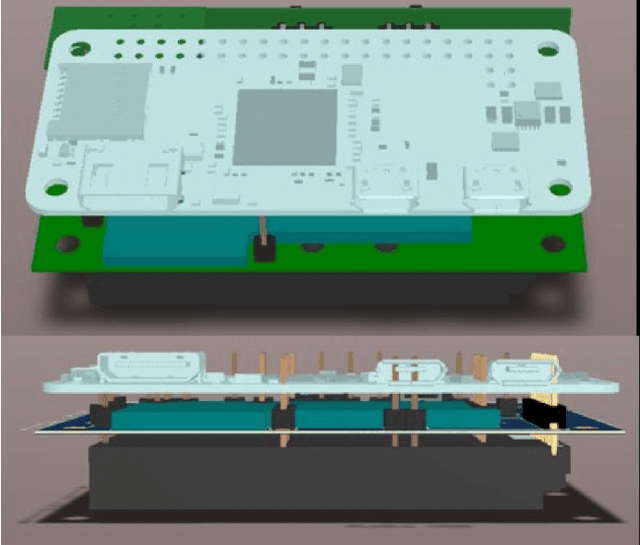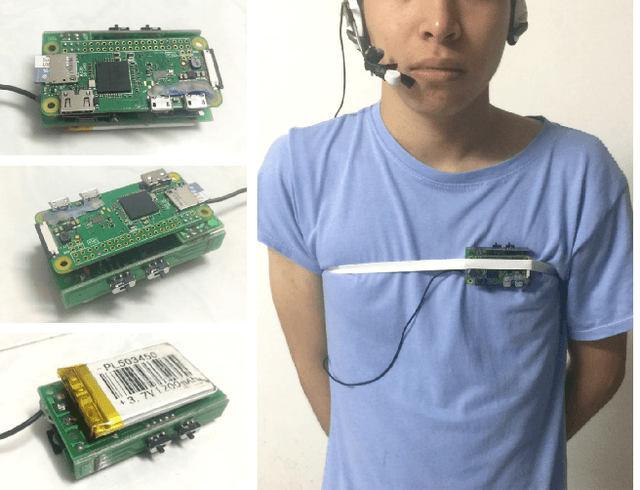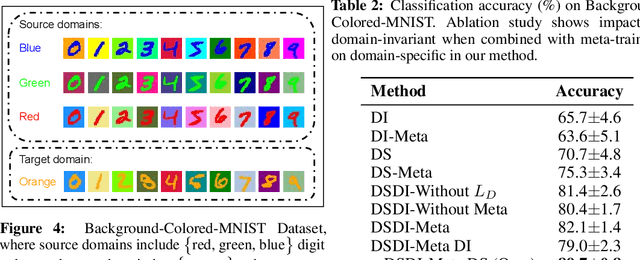Manh-Ha Bui
Personalized breath based biometric authentication with wearable multimodality
Oct 29, 2021



Abstract:Breath with nose sound features has been shown as a potential biometric in personal identification and verification. In this paper, we show that information that comes from other modalities captured by motion sensors on the chest in addition to audio features could further improve the performance. Our work is composed of three main contributions: hardware creation, dataset publication, and proposed multimodal models. To be more specific, we design new hardware which consists of an acoustic sensor to collect audio features from the nose, as well as an accelerometer and gyroscope to collect movement on the chest as a result of an individual's breathing. Using this hardware, we publish a collected dataset from a number of sessions from different volunteers, each session includes three common gestures: normal, deep, and strong breathing. Finally, we experiment with two multimodal models based on Convolutional Long Short Term Memory (CNN-LSTM) and Temporal Convolutional Networks (TCN) architectures. The results demonstrate the suitability of our new hardware for both verification and identification tasks.
Exploiting Domain-Specific Features to Enhance Domain Generalization
Oct 18, 2021



Abstract:Domain Generalization (DG) aims to train a model, from multiple observed source domains, in order to perform well on unseen target domains. To obtain the generalization capability, prior DG approaches have focused on extracting domain-invariant information across sources to generalize on target domains, while useful domain-specific information which strongly correlates with labels in individual domains and the generalization to target domains is usually ignored. In this paper, we propose meta-Domain Specific-Domain Invariant (mDSDI) - a novel theoretically sound framework that extends beyond the invariance view to further capture the usefulness of domain-specific information. Our key insight is to disentangle features in the latent space while jointly learning both domain-invariant and domain-specific features in a unified framework. The domain-specific representation is optimized through the meta-learning framework to adapt from source domains, targeting a robust generalization on unseen domains. We empirically show that mDSDI provides competitive results with state-of-the-art techniques in DG. A further ablation study with our generated dataset, Background-Colored-MNIST, confirms the hypothesis that domain-specific is essential, leading to better results when compared with only using domain-invariant.
 Add to Chrome
Add to Chrome Add to Firefox
Add to Firefox Add to Edge
Add to Edge